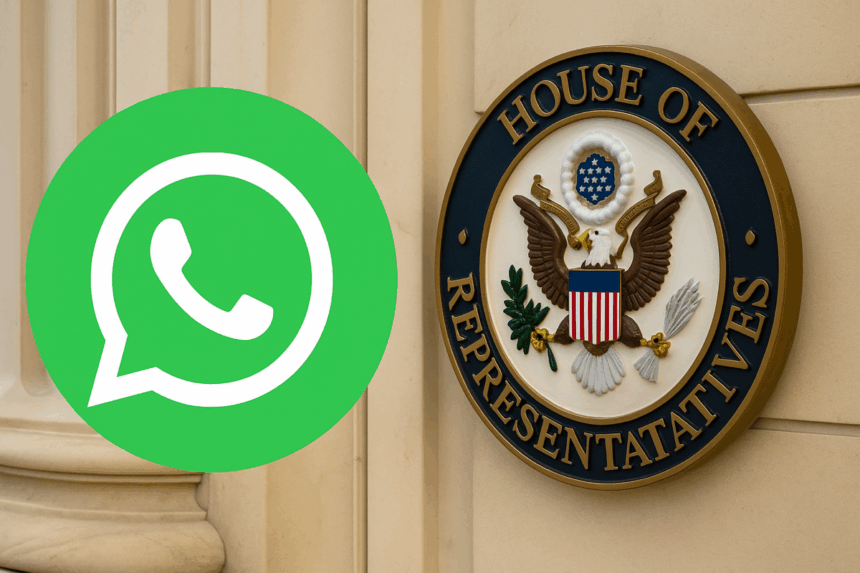The U.S. House of Representatives bans WhatsApp on all official devices over cybersecurity concerns. The ban targets the messaging app’s handling of user data and security risks. This action reflects growing worries about data protection in government communications. The House recommends alternative secure messaging platforms for staff.
What’s Happening & Why This Matters
The Office of Cybersecurity issues a memo stating WhatsApp is “high-risk” due to its lack of transparency in protecting user data. The memo notes WhatsApp’s absence of stored data encryption. This vulnerability increases the chance of unauthorized access and data breaches.
The memo suggests Microsoft Teams, Amazon’s Wickr, Signal, Apple’s iMessage, and FaceTime as safer communication tools. These alternatives offer end-to-end encryption or stricter data controls. Microsoft Teams remains a popular choice within government agencies for secure messaging and collaboration.
Meta, the owner of WhatsApp, does not immediately comment on the House’s decision. The lack of response leaves questions about how Meta plans to address the security concerns raised by U.S. lawmakers.
Signal App Draws Controversy Despite Encryption

Signal uses end-to-end encryption, similar to WhatsApp, but faces its unique challenges. Defense Secretary Pete Hegseth recently shared sensitive information about military plans in private Signal group chats. One chat accidentally included a journalist, exposing operational details.
Pentagon Warns Against Signal Use for Sensitive Information

The Pentagon previously cautioned employees about Signal due to a technical vulnerability. Russian hackers could exploit this flaw to spy on encrypted communications, potentially targeting “persons of interest.” The Pentagon allows Signal for unclassified info but prohibits its use for “non-public” unclassified information.
This situation presents risks associated with third-party messaging apps. Although encrypted, apps like WhatsApp and Signal may still expose users to privacy breaches or espionage attempts. Government agencies stress the use of platforms with proven, robust security measures.
TF Summary: What’s Next
The U.S. House of Representatives bans WhatsApp due to security risks and data protection concerns. The government encourages the use of safer, encrypted messaging platforms, such as Microsoft Teams and Apple’s iMessage. Meanwhile, challenges with other encrypted apps, such as Signal, demonstrate that no solution is foolproof.
U.S. federal agencies will increase scrutiny of all communication tools to safeguard sensitive data. Ongoing updates to cybersecurity protocols remain critical as threats continue.
— Text-to-Speech (TTS) provided by gspeech


